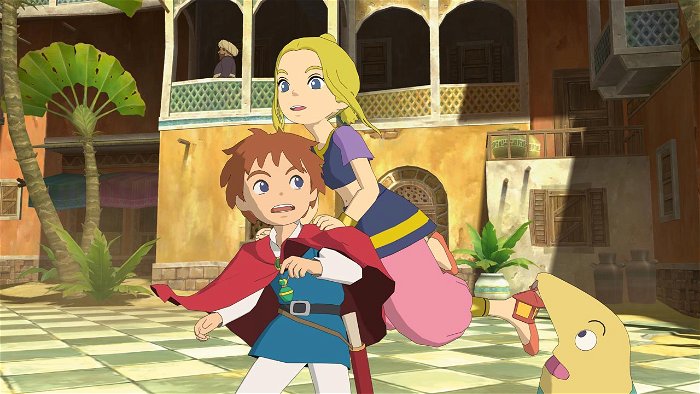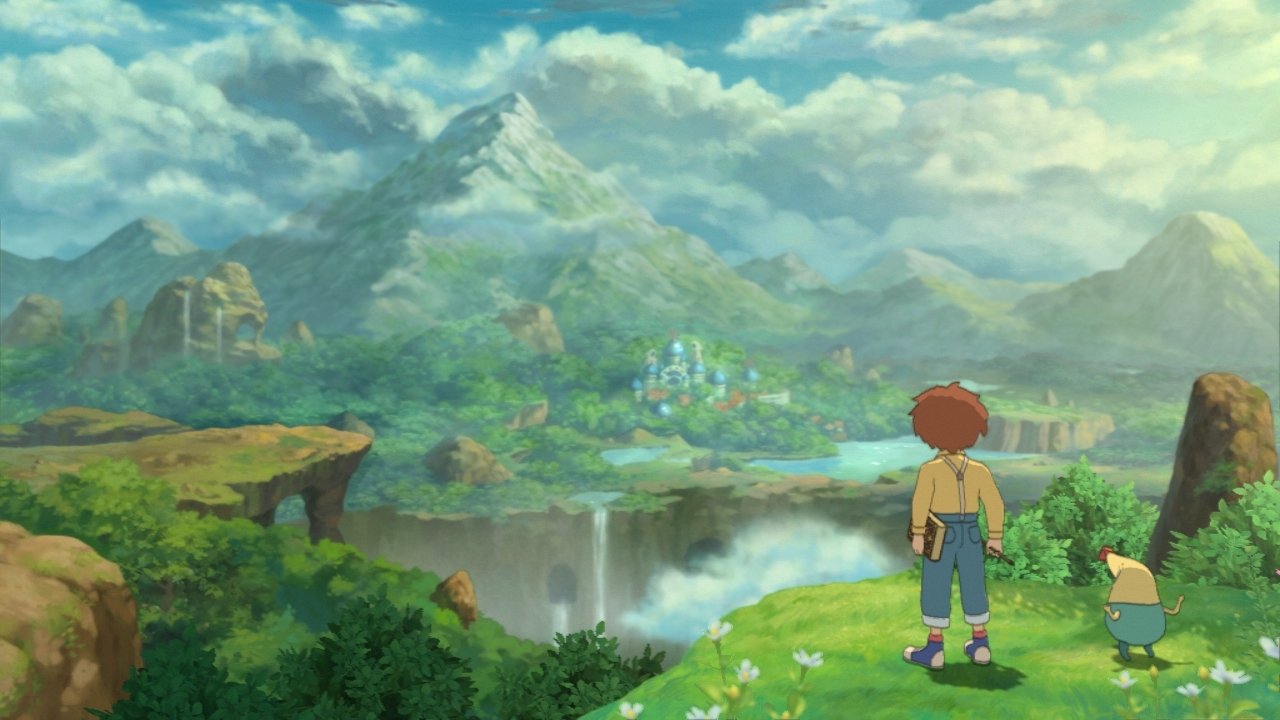I’ve been spending most of this week playing Ni no Kuni for my review of the game, and I’ve noticed I’ve been doing something a lot while playing that I don’t do a whole lot of these days; frequently grin or smile.
And the reason for that is because Ni no Kuni had one objective when Level-5 conceived the game. They wanted a return to the “good old days” of JRPGs when the genre was filled with innocence, wonder and yes, charm. Ni no Kuni is a charming game, and I had forgotten what it felt like to have that experience when playing a game.

In teaming up with the famed animation house Studio Ghibli, Level-5 made it clear that they wanted to create a game wasn’t “mature.” And by that, I mean a game that wasn’t focused on dark and horrible acts as its badge of merit to prove it was grown up. I’m not sure when the gaming industry decided that “mature” equated to moral degeneration, extreme violence and occasional flirtations with nudity, but it’s something that’s been embraced by everyone from Capcom with their latest Devil May Cry title to Hitman. Mature, most of the game industry believes, seems to be moaning ‘the world sucks,’ and then making people interact with this vision of reality.
Ni no Kuni doesn’t do this.
Ni no Kuni is telling a sincere, fairy tale about the nobility of the human heart It’s nice to play a game that takes pride in people rather than be in despair of them.Ni no Kuni is telling a sincere, fairy tale about the nobility of the human heart It’s nice to play a game that takes pride in people rather than be in despair of them.In some ways, it’s probably damning itself to less than stellar sales since it lacks the dark n’ gritty overtone that is typical of most modern, popular games like Call of Duty and God of War. And yet at the same time, it’s doing something successfully that few games manage in this more cynical generation of gaming. Ni no Kuni is telling a sincere, fairy tale about the nobility of the human heart and value of doing kind or courageous things for others. In its protagonist, Oliver, we have a young boy that is coping with the loss of his mother by traveling to another world and helping those in need all around him. Through his actions he restores families, relationships, self-esteem and even fosters love, in addition to fighting an evil that puts the world in peril. As with some of the best JRPGs of the past, Ni no Kuni celebrates friendship, discipline, tenacity and faith in the self and others to do the right thing, and it does all this without irony or cynicism. Ni no Kuni is not about good defeating evil because marketing has determined “certain audience segments respond to this stuff.” If Ni no Kuni espouses these values, it’s because the director, Akihiro Hino, and his peers at Studio Ghibli still believe in these values themselves and want to share them with others.
Ni no Kuni, like its creators at Studio Ghibli, is not afraid to provide more innocent, perhaps hokey, charm or delight. It is willing to revisit childhood, with its boundless sense of possibility and whimsy, and let players feel like a youngster on a grand adventure, where the only things that will happen are exciting, courageous or moving, not morally ambiguous or riddled with betrayal. Simple heroism is celebrated, as are simple values like generosity and kindness, and helping people with even the smallest, seemingly trivial problem.

In many ways, playing Ni no Kuni reminds us of the kind of people we wanted to be once upon a time, when we were younger and less jaded. And for actual children, I think there are a lot of important lessons that the game can leave them with. After all, would you want your child to meditate on the courage to do the right thing, or watch amoral assassins kill people for money? Disney may not see any profit in putting the values of their animated films into interactive form, but thankfully Level-5 and Studio Ghibli disagree. It’s nice to play a game that takes pride in people rather than be in despair of them.




